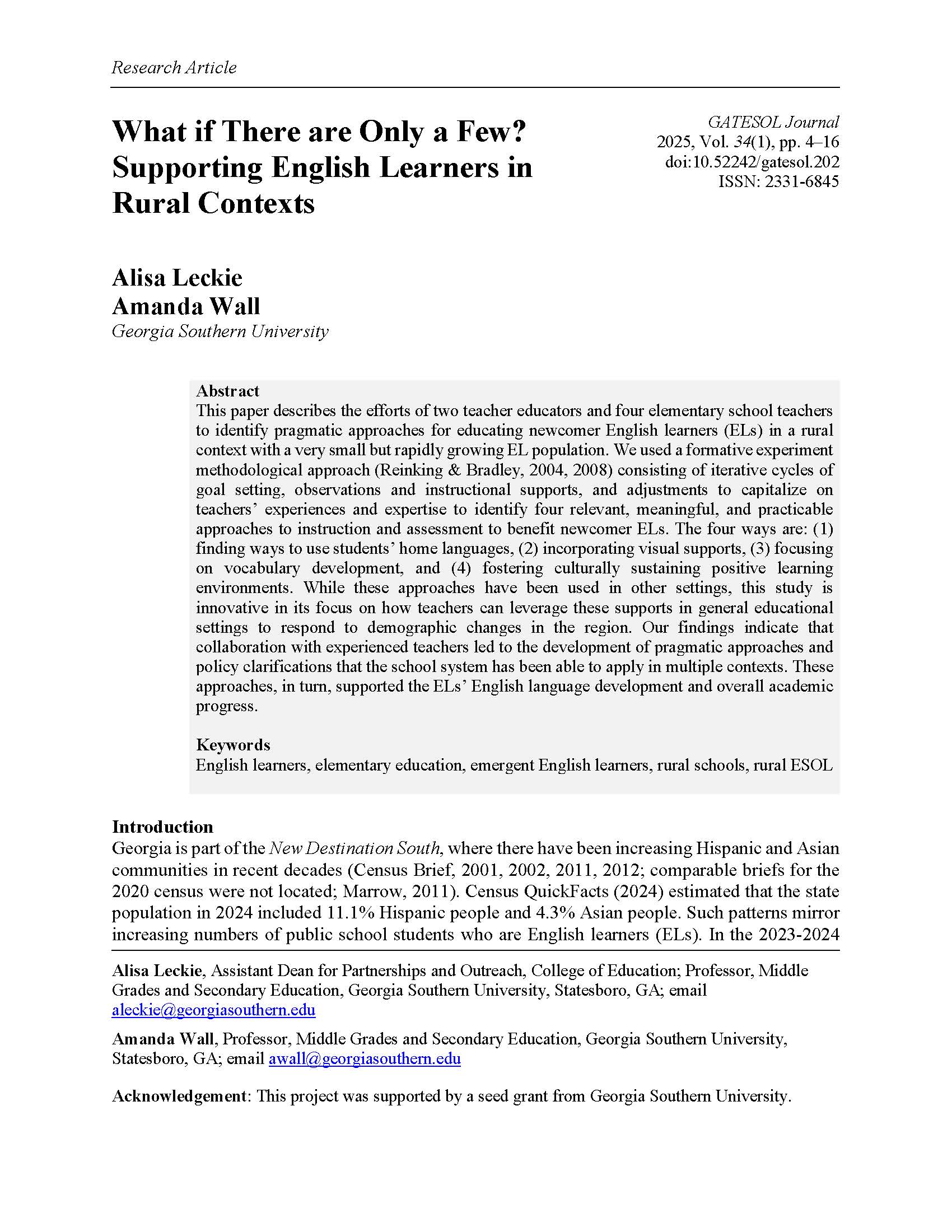What if There are Only a Few? Supporting English Learners in Rural Contexts
DOI:
https://doi.org/10.52242/gatesol.202Abstract
This paper describes the efforts of two teacher educators and four elementary school teachers to identify pragmatic approaches to educating newcomer English learners in a rural context with a very small, but rapidly growing English learner population. The use of a formative experiment methodological approach (Reinking & Bradley, 2004, 2008) consisting of iterative cycles of goal-setting, observations, and adjustments allowed researchers to capitalize on teachers’ experiences and expertise to identify four relevant, meaningful approaches to instruction and assessment to benefit newcomer English learners. These approaches are also pragmatically possible for their teachers. The four ways are: 1) finding ways to use students’ home languages, 2) incorporating visual supports, 3) focusing on vocabulary development, and 4) fostering culturally sustaining positive learning environments. While these approaches have been used in other settings, this study is innovative in its focus on how teachers can leverage these supports in general educational settings to respond to demographic changes in the county and overall region. Findings indicate that collaborating with experienced master teachers in this research led to the development of pragmatic approaches and policy clarifications that the school system has been able to apply in multiple contexts. These approaches in turn supported the English learners’ development of English language and overall academic progress.

